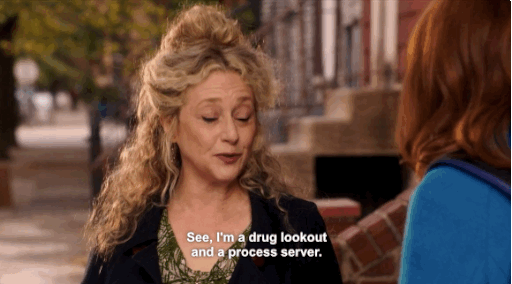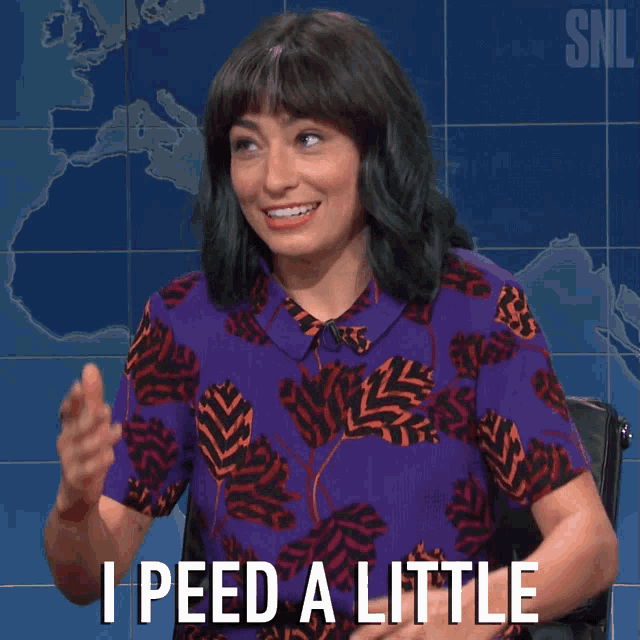Right before the pandemic began I interviewed some witches about their side hustles—how they started, how they kept them going, how they monetized them, where they kept their work materials, and so on. Then it was quarantine and homeschooling and things like work and hobbies and hustles and pleasure were all thrown up in the air. (Shout out to Jessica and Heather for talking to me back in 2020—check out their talents and wares).
Cut to today—the pandemic is over and now we have all our shit figured out! Ha. No, for real, while I don’t sense any working moms feel confident about what lies ahead (anyone else in a semi-constant state of bracing?) I think there is a sense of “Okay, what now?” among many of us, especially those whose kids have passed some sort of independence milestone over the last few years. We’re looking for new work, new meaning, ways to make our time and talents count and ideally make money while we do it.
How possible is this? It is possible! I can speak from experience that pre-kids, I used to keep my freelance writing/creative life distinctly separate from my dayjob, inspired in part to a boss who mused “Hmm! I wonder how you have time to do both things” after I proudly showed her a clip I’d published in the Chicago Tribune about women in her field. However, the managers at the next job I applied to were aware of the side work I had been doing blogging for our local NPR station and saw that work as an asset and not a distraction.
To that end, a mom friend posted the following query on Facebook and I wanted to run it here because I think it embodies the professional, personal and passionate sides of many witches who want to know if and how you can put all your talent and experience forward to sell your professional self, even if it isn’t in a straight neat line:
I am seeking advice about how to approach a professional thing as an unprofessional person at heart because I think so much of it is bullshit. There’s a job at a foundation I’m considering. It includes programming, presentations, project management, social media, and storytelling. It’s all stuff I have experience in. For crying out loud, I brought roller derby to my town and built an organization of over 100 volunteers. That alone is could be its own resume, but I haven’t participated since 2012. Everything I read says that the hard skills are what people really look at and I’m also embarrassed about the names of the spaces I built that refer to drinking or sex or whatever.
My dilemma - My consistent paycheck job does not reflect a lot of those skills, though, I can manipulate it to look like it a little. It’s my creative and personal life and community building that really shows off my skills for the position. Can I combine these things into one “professional” resume or would it make sense to do a “this is my job” resume and also attach a creative resume?
Below are a few brief pieces of advice from witches who have been there along with a longer answer from Courtney C.W. Guerra, aka Ask a Businesslady (who has helped me out before with advice about asking for raises/promotions.) Of course, this advice may not apply to all fields—your corporate law firm or hospice care facility may not want to know about your burlesque experience (although they should!)
*
“Community building/volunteering/creative work is all stuff you can put on the same resume as your ‘real job.’ Absolutely. And you don’t have to use the names that seem silly. You can just call it ‘athletic team’ and ‘writers’ event’ or whatever. And 10 years back is not too far—it’s pushing it, but you can totally include roller derby.”
*
“All on one resume! This also has the benefit of making volunteer stuff look more ‘professional’ whereas separate documents will make people question more. Treat it like internships or whatever: no need to disclose at this stage that it was unpaid or not ‘formal.’ Ten years of jobs go on your resume, so provided this stuff was big, long term and showcases skills, it is absolutely valid to put it there.”
*
“I think anything interesting and relevant you can stick under ‘related skills,’ ‘other experience’ or frankly put it all under ‘experience.’ This stuff is not only valid, it will make you stand out.”
*
“Embrace imposter syndrome! Own that you are a trickster goddess!”
*
“One tip is to look at the language in the job description: use words and recite some of what they’re looking for in your own experience. Speak their language and explain your current role and skills in a way that addresses what they’re looking for as much as you can/makes sense/isn’t dishonest.”
*
“You should absolutely include this stuff on your resume, and also WHO CARES ABOUT THE SILLY NAMES. Take your creative endeavors and treat them professionally, because they’re a big deal and you succeeded with them.
Also, my company is hiring right now: a great cover letter that references our mission has opened doors for people who seem less experienced on paper, whereas someone with a lot of relevant experience who writes a bad or minimal cover letter doesn’t move forward.”
*
“For political and political-adjacent orgs, relationships matter a ton, often way more than the resume - you should map the people you know at the foundation and figure out who in your network may know them.”
*
Now here’s some more extensive feedback from Courtney C.W. Guerra, a witchy writer and editor who published work advice as Dear Businesslady for The Billfold and The Toast. She is the author of the career guide Is This Working?:
While I’ve discussed resumes many times on some of our nation’s finest defunct websites (these three posts are my favorites), it’s a topic that never gets old for me. They are a strange, often frustrating genre, true, but they’re also a chance to document all the things that you’re good at, and they represent the hope of a better job—whether that means more money, more free time, more interesting work, or all of the above. It’s easy to associate “professional” with a kind of performed stuffiness and see our “unprofessional” selves as more authentic by comparison, but I think that’s an unnecessarily binaristic view of things. Your resume is where you showcase your “hard skills,” yes, but also intangibles like the ways that you’re productive, driven, competent, accomplished, talented, and so on—even if the evidence originates in extracurricular activities.
Unusual resume additions also distinguish you from other applicants by presenting a profile that’s uniquely your own. I did improv and sketch comedy back in college—something that’s yet to be directly applicable to my professional life, and which took place approximately eighty-four years ago—but it will live on my resume forever, if only because it makes for some interesting fodder for interviews. When someone asks about it, it’s an opportunity for me to talk about how that comedy background informs my interpersonal interactions, something that’s essential to who I am as a person but hard to get across otherwise. I have my Businesslady stuff on there too, despite the fact that I don’t do this kind of writing in my day job and there aren’t many positions where “ability to write a book” is a requirement. I’ve been on the other side of the resume-exchange equation often enough to know that you can infer a lot from the details a candidate gives you, especially if they go beyond what you expected to see. It’s a way of prompting a conversation about abilities that can be hard to convey or quantify any other way.
All of which is to say, yes, you should absolutely let hiring managers know about your creative and community-oriented work. Rather than have a “professional” resume and a “creative” one, I channel the wisdom of the girl in the Old El Paso commercials and ask: “¿porque no los dos?”
When I talk about resumes, I’m actually talking about two different things. There’s “your resume,” which is a most-likely-too-long master document of everything you’ve ever done that might align with an appealing job description. Then there’s the actual resume that you submit with a given application, which is a curated version of the first thing. Even if you don’t have enough work history to feel comfortable deleting whole jobs or bullet points, you can (and should) still remix and reorganize what’s on there to highlight the stuff that’s most relevant.
The fact that you were helping organize an entire roller-derby league a decade ago tells me you should probably have a two-page resume. I do not know how the “resumes should be one page max” idea got started, but I suspect it’s something that folks were told as college students which then got internalized as a universal rule. But just because a 22-year-old who’s only spent a couple summers in an office doesn’t need more than a page to explain what they’re good at doesn’t mean you’re beholden to that limitation forever.
Once you’ve logged some hard time in the workforce, trying to shove everything onto a single page just makes the formatting cramped and/or risks omitting valuable content. Moreover, “doing your resume wrong” is kind of overblown in terms of things to worry about. I’m a trained and inveterate editor who’s punched up many dozens of resumes, so whenever I see one in a hiring context, I almost always disagree with at least a few language or layout choices. Yet I…still read them? And generally speaking, I don’t hold those disagreements against the candidate unless they signal something that’s a liability for the job they’re pursuing. Resumes are weird, everyone takes a different approach, and a manager who puts too much stock into arbitrary rules on that front is probably going to be a nightmare to work for.
Don’t try to cram it all on one page if you’ve got enough material to make it longer. A two-page resume grants you the space to list specific details about what you achieved in different positions. It also gives you room to include more unconventional accomplishments like the ones LW mentioned above. While it’s probably the case that hiring managers are most interested in the things you did “professionally,” anything with community impact or a full organization of people behind it is pretty impressive too. (Individual projects are a bit less meaningful, just because there’s not as much accountability, but you can still list them if they’re relevant to the job.) There’s something inherently compelling about unexpected resume additions, both because anything out of the ordinary gets your attention, and because they reflect a deliberate choice by the candidate. Everyone is going to share a list of jobs, but the decision to mention side projects—and the motivation to do those projects in the first place—is intriguing.
It does get trickier if your work involves “unprofessional” concepts like sex or drinking, because ideally your resume shouldn’t include anything you wouldn’t feel comfortable discussing in an office setting. (Sex references, especially, could wend problematically close to sexual harassment depending on the language.) But even if your main experience is in bars and burlesque clubs, you can probably find a way to clean up the wording—talking in a general way about “theatrical performances” or the “hospitality industry” and avoiding specific names if they feel too blue. You don’t want to raise concerns about your judgment—whether you understand what belongs in a work context and what doesn’t—but err on the side of caution and you should be fine.
(A quick side tip for anyone including these kinds of side projects in their job applications: it’s probably smart to have references in mind who can speak to your work in those areas, in case you’re asked to provide them. Similarly, if you have any public-facing websites, social media accounts, and whatnot that someone might find while investigating that stuff, make sure it’s doing all it can to make you seem like an attractive job candidate.)
In terms of resume organization, I’d recommend a format like this: at the top, a “skills summary” that highlights all the ways you match the job description you’re targeting—including things that you did in your spare time. Then, a category like “professional experience” that does the standard resume thing of listing positions with employment dates, responsibilities, and notable accomplishments.
After that—either toward the bottom of page 1 or somewhere on page 2—you can move on to “other relevant experience.” List volunteer gigs, creative projects, community service, or anything else here, using the same format (giving your role a descriptive name, providing dates for the work you did, and sharing major achievements as before). Wrap up with an education section and software/language competencies if that makes sense for your industry and background, and voila: resume achieved.
I may have a weird zeal for resumes, but my real love is the cover letter, and I think that piece will be especially important if you’re putting forward a less traditional professional profile. It can be hard to convey sincere enthusiasm for the nonsense you deal with at your job all day (although if you can, your cover letter will be better for it), but surely the projects you’ve taken on for funsies elicit some positive feelings. You can use that as a way to demonstrate your capacity to feel passionate about your work —and give hiring managers a sense of who you are as a person in the process.
When you’re job-searching, it may feel like you’re being asked to contort yourself into alignment with a set of desired qualifications, but hiring managers know they’re not going to get many (or any) candidates who check every box. What they’re hoping to find is someone who can credibly do the job they need done, and who will mesh well with the broader organization. It’s not always easy to assess someone’s personality from a dry “here’s all the jobs I’ve done ever”–style resume and cover letter. Sharing volunteer work and the like helps humanize you—in addition to showcasing a more extensive skill set. That, in turn, helps you stand out from other applicants. Who knows, you might end up getting an interview simply because a key stakeholder is a huge derby fan. And if you’re in a position to be a bit picky about your job opportunities, there’s nothing wrong with ruling out places that are too stodgy for you to feel satisfied long-term.
It’s rare that a job search leads you to a role doing the exact same work you’re already doing. More often, you’re seeking out—to quote a million resignations and all-staff sendoff emails—“new challenges” or “new opportunities.” It’s easier to demonstrate that you’re capable of more than what your current position entails if you’re willing to get creative.
We all have a professional persona we send out into the workforce so that we have some spending money in our personal lives. Ideally, though, those two selves should feel somewhat continuous with one another, or at least live in harmony. Maybe letting some contextually appropriate personality sneak into your application materials is how you find a job that nourishes your “unprofessional” side.
End credits
I hope you found something useful in this issue of Evil Witches, a newsletter for people who happen to be mothers. Feel free to share it with a witch you know who has been wondering something similar!
If you like this newsletter and haven’t yet, please consider supporting this independent, nonsponsored work and join the paid subscription level, which gives you extra context and access to subscriber-only witchy discussion threads where we get extra personal, helpful, practical and stupid.
Some future issues down the line, if you have any advice to share on these topics, include changing your last name post-divorce, tips on life with a tween, and what to teach your child about socializing when you don’t like to socialize. Also look out for a gorgeous conversation about getting matching tattoos with your young adult child.
If you have already subscribed, thank you! I know there are a million newsletters out there and counting, so I appreciate it. If you have any questions, feedback, or suggestions for future issues you can reply right to this email. You can talk to other witches on Twitter, too. The archives live here. A few older issues cover how to publish a book and be a mom, what your friend in a marriage crisis could use, and the bullshit notion that moms shouldn’t make parenting decisions that benefit them.







I had a viral video in which I interviewed a woman getting her anus tattooed — not something you can put on just any resume! But it was a career peak in many ways. It was on Bill Maher, MTV, it was everywhere. A lot of the work I did 7+ years ago a music/culture editor at an alt weekly definitely doesn't fall into the "professional" category, and it's ON THE INTERNET FOREVER, lol. Honestly, I wish I could share this stuff because it requires some savvy and skills. But it's supposed to be embarrassing now that I'm older and culture has changed. I sort of hate the "professional" world for making us pick and choose sides of ourselves to share, even if they're sides that could help us with our current work.